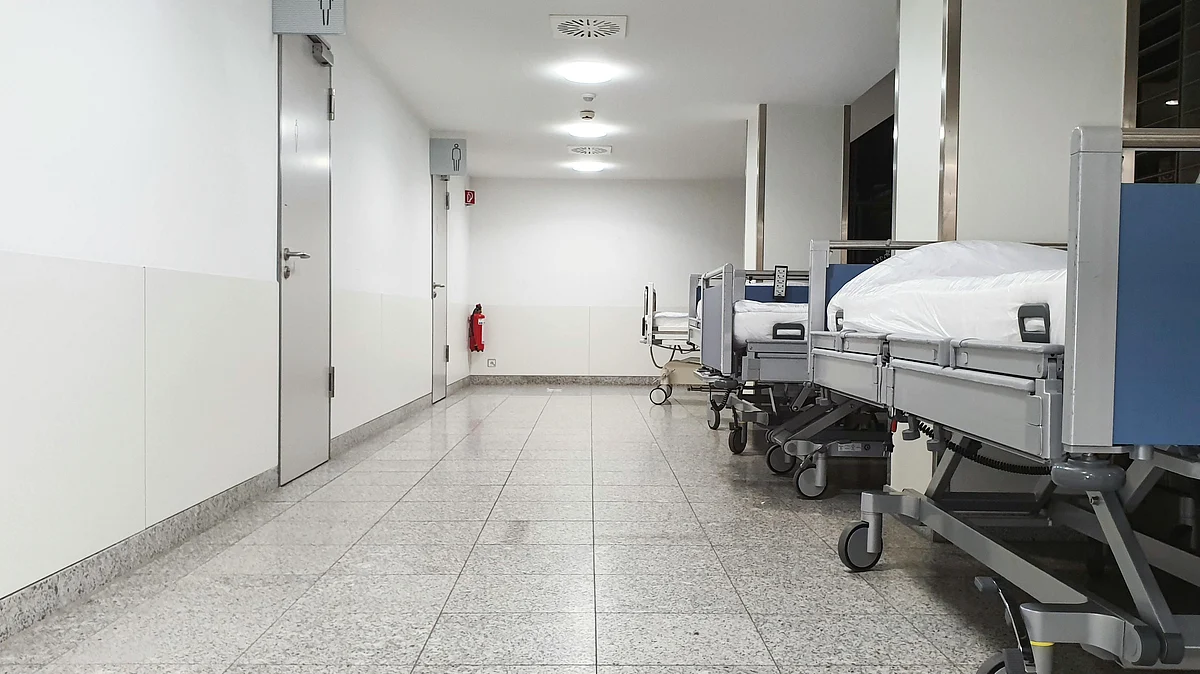Health
Mumbai’s Hospital Privatisation Plan Faces Public Health Backlash

The Brihanmumbai Municipal Corporation (BMC) has recently initiated a plan to privatise key health services in Mumbai, prompting widespread criticism from health activists and citizens. This initiative includes outsourcing various services, from food supply to advanced medical facilities, raising concerns about the potential impact on public healthcare accessibility for lower-income residents.
Public-Private Partnerships Transforming Healthcare
The BMC has proposed a public–private partnership (PPP) model for establishing dialysis units, cath labs, MRI and CT scan facilities, and blood banks across several municipal hospitals. Notable locations affected include Rajawadi Hospital in Ghatkopar, MT Agarwal Hospital in Mulund, and Bhabha Hospital in Bandra and Kurla. These changes aim to expand healthcare services but have sparked fears that they may prioritise profit over patient care.
Additionally, tenders released in March indicate that Shatabdi Hospital and Medical College in Govandi will allocate 70% of its 581 beds to paying patients, limiting the availability of subsidised care to just 30% for civic referrals. Similarly, Lallubhai Compound Hospital in Mankhurd will reserve 150 of its 410 beds for civic referrals, while the rest will serve those with specific ration cards.
Concerns Over Quality and Accountability
Dr. Abhay Shukla, National Co-convenor of Jan Swasthya Abhiyan, expressed skepticism regarding the efficacy of existing PPP projects, stating that over 20 such initiatives are already in operation within Mumbai’s municipal health network. “Yet, there is no independent evidence that these PPP arrangements have improved the quality or accountability of health services,” he noted, highlighting concerns about the adequacy of care in these facilities.
In response, approximately 25 organisations, including BMC health worker unions, have united under the Aspatal Bachao, Nijikaran Hatao Kriti Samiti (ABNHKS). They are demanding a halt to the outsourcing of public health services, urging for the recruitment of additional staff and the strengthening of existing public health facilities. Girish from the Kamgar Ekta Committee stated, “Six major BMC hospitals are being handed over to private companies through PPP arrangements. This will replace free public services with paid care, hitting the poor and marginalised hardest.”
The coalition has raised concerns about the replacement of permanent staff with outsourced workers, which they argue compromises service quality and job security. “It’s a deliberate strategy—weaken the public system through neglect, then hand it over to private operators,” Girish added.
Studies Highlight Issues with Existing PPPs
A senior member of ABNHKS referenced a recent study examining healthcare PPPs in Mumbai and Pune. The study found alarming issues such as underqualified personnel in outsourced ICUs and inflated diagnostic charges, which can be up to 25 times higher than rates in civic hospitals. “These projects often prioritise profit over public welfare,” the member remarked.
Supporters of public healthcare contend that the BMC’s claim of limited hospital capacity is misleading. According to a report from the Praja Foundation, vacancy rates in civic hospitals are at critical levels—46% among doctors, 26% among nurses and paramedical staff, and 42% among support staff, leading to an overall 36% shortage in the health department. An ABNHKS representative stated, “There are around 975 vacant medical posts in the BMC, while Mumbai’s medical colleges produce about 1,200 MBBS and 1,000 MD/MS doctors annually. There are enough qualified professionals to fill all positions.”
Political Accountability as Elections Approach
With local elections on the horizon, the ABNHKS coalition is pushing for the BMC to retract its privatisation policies, claiming they primarily benefit contractors and corrupt officials. “All political parties and candidates will be asked to declare their stance on public health and privatisation,” Girish explained. “Those who support public healthcare will be recognised, while those who don’t will be exposed as enemies of public health.”
As the debate over the BMC’s privatisation plan continues, the future of public healthcare in Mumbai hangs in the balance, with many advocating for a return to a healthcare model that prioritises accessibility and quality for all citizens.
-

 World5 months ago
World5 months agoSBI Announces QIP Floor Price at ₹811.05 Per Share
-

 Lifestyle5 months ago
Lifestyle5 months agoCept Unveils ₹3.1 Crore Urban Mobility Plan for Sustainable Growth
-

 Science4 months ago
Science4 months agoNew Blood Group Discovered in South Indian Woman at Rotary Centre
-

 World5 months ago
World5 months agoTorrential Rains Cause Flash Flooding in New York and New Jersey
-

 Top Stories5 months ago
Top Stories5 months agoKonkani Cultural Organisation to Host Pearl Jubilee in Abu Dhabi
-

 Sports4 months ago
Sports4 months agoBroad Advocates for Bowling Change Ahead of Final Test Against India
-

 Science5 months ago
Science5 months agoNothing Headphone 1 Review: A Bold Contender in Audio Design
-

 Top Stories5 months ago
Top Stories5 months agoAir India Crash Investigation Highlights Boeing Fuel Switch Concerns
-

 Business5 months ago
Business5 months agoIndian Stock Market Rebounds: Sensex and Nifty Rise After Four-Day Decline
-

 Sports4 months ago
Sports4 months agoCristian Totti Retires at 19: Pressure of Fame Takes Toll
-

 Politics5 months ago
Politics5 months agoAbandoned Doberman Finds New Home After Journey to Prague
-

 Top Stories5 months ago
Top Stories5 months agoPatna Bank Manager Abhishek Varun Found Dead in Well









